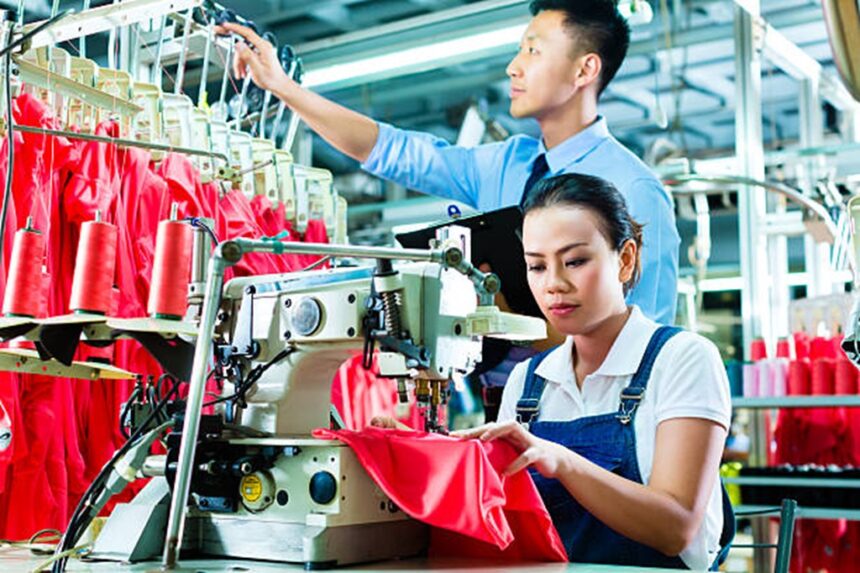The prospect of a Canada-Thailand Free Trade Agreement (FTA) is sparking excitement among wholesale clothes retailers. This deal could open up new doors for the custom clothing industry, particularly for customizable clothes and custom t-shirts.
This potential agreement between Canada and Thailand would remove tariffs and reduce trade barriers, fostering smoother economic exchanges. By streamlining trade processes, the agreement could allow Canadian retailers to access Thailand’s thriving textile and apparel markets. Similarly, Thai manufacturers may find it easier to export their versatile products to Canada.
For Canadian businesses, the FTA aligns with the country’s broader trade expansion strategy. According to Canada’s Global Affairs department, trade agreements like this ensure better market access and global competitiveness. Thai businesses, known for their expertise in textiles, stand to gain entry into a market eager for custom clothing solutions.
The custom clothes industry thrives on variety, affordability, and quick turnaround times—qualities that Thai manufacturers are well-equipped to provide. With Thailand’s established textile industry, Canadian retailers could source products like custom t-shirts, hoodies, and more at competitive costs. For businesses looking to scale, this streamlined access removes unnecessary barriers, making imports faster and simpler.
Wholesale Clothing Advantage
Moreover, customized apparel is a growing trend. Platforms such as Custom Ink already enable businesses and consumers to design their own clothing. With an agreement in place, Canadian platforms could expand their offerings using textiles and finished products imported from Thailand. This could significantly reduce costs while maintaining high quality.
Thailand is known for its robust fashion and textile manufacturing industry, producing everything from organic cotton fabrics to high-tech, performance-based textiles. These products support diverse applications in customizable clothing. Whether it’s creating personalized t-shirts for corporate events or bulk orders for small businesses, Thai suppliers ensure both creativity and affordability.
According to Thailand’s trade missions, the country’s commitment to sustainability and innovation in its exports could also reassure Canadian retail businesses focused on eco-conscious consumers. For instance, Canadian companies could partner with Thai suppliers to produce eco-friendly custom t-shirts that align with modern-day consumer demands.
Made-to-Order Wholesale Clothing
One key aspect of the Canada-Thailand FTA is the simplification of logistics. If duties on textile imports are reduced or eliminated, shipping costs become more predictable. Canadian retailers won’t just save money—they’ll also benefit from quicker restocking cycles. This is critical for businesses offering fast-turnaround services like Wordans, which focus on instant-order customization.
For instance, wholesale retailers importing bulk custom apparel can better manage inventory levels, enabling a more agile response to market demand. The faster delivery cycle would also mean quicker availability for made-to-order fabrics and prints.
Digital transformation is reshaping retail, and e-commerce has surged. The Canada-Thailand FTA could amplify this trend by enhancing access to competitive products from both markets. Canadian e-commerce brands that specialize in customizable clothing, like the companies featured like Wordans customizable clothes, may find enormous benefits.
These online stores could source custom products at a fraction of current sourcing costs. For example, a retailer offering custom hoodies and t-shirts might find better margins and the ability to offer faster shipping—all thanks to simplified trade policies.
Levelling the Playing Field for Wholesale Clothes Retailers
While some benefits of FTAs seem skewed toward larger companies, local retailers and startups will also profit. By enabling access to affordable textiles and custom clothing options, small businesses have a chance to compete with global players. Lower import costs and broader product availability mean even smaller shops can carry premium-quality customizable clothes.
For instance, Canadian startups specializing in local events or team custom t-shirts could tap into Same Day Tees services while sourcing Thai-made fabrics. The FTA aims to cut red tape, further simplifying partnerships between such retailers and global suppliers.
As of now, Canada continues to negotiate bilateral deals that can boost its economic recovery. On a broader scale, the discussions on the Canada-ASEAN FTA are also critical to promoting freer trade in the region. For retailers focused on growth, this sets the stage for more streamlined processes and fewer restrictions, allowing them to innovate and grow.
Thailand’s efforts to enhance its existing trade treaties with major partners reinforce this trend, showcasing its commitment to global business. If the Canada-Thailand agreement comes to fruition, it’ll strengthen not only bilateral relations but economic interdependence between businesses in both countries.
For wholesale clothing retailers in Canada, the potential Canada-Thailand Free Trade Agreement represents more than reduced tariffs—it offers access to quality materials, competitive pricing, and faster logistics. From customizable t-shirts to eco-friendly apparel, retailers should prepare for the opportunities this FTA may bring. Whether you’re a small business or a seasoned retailer, the future of custom clothing just got brighter.
Related News:
Thailand Set to Begin FTA Talks with Russia and EAEU

Geoff Thomas is an award winning journalist known for his sharp insights and no-nonsense reporting style. Over the years he has worked for Reuters and the Canadian Press covering everything from political scandals to human interest stories. He brings a clear and direct approach to his work.














